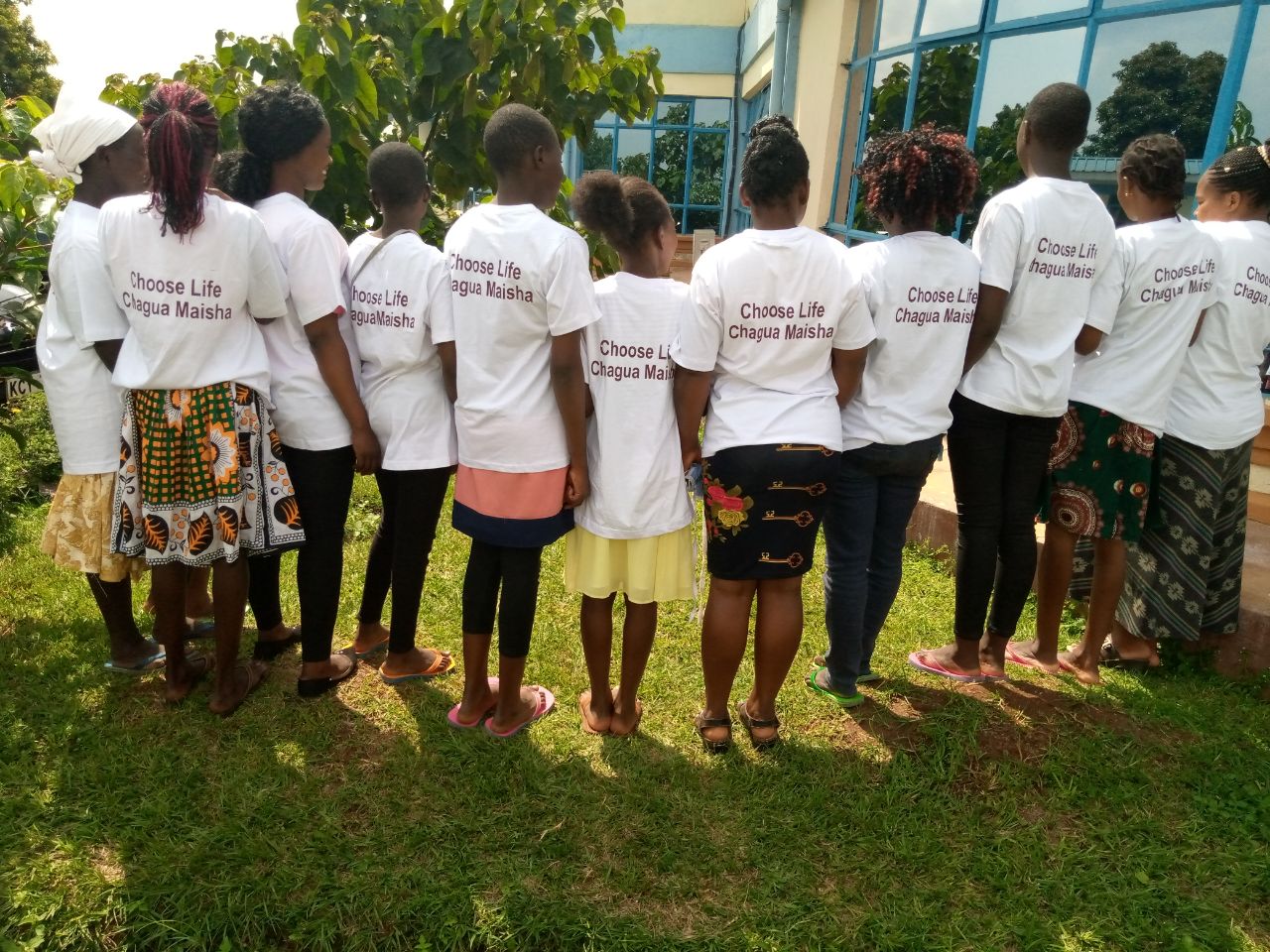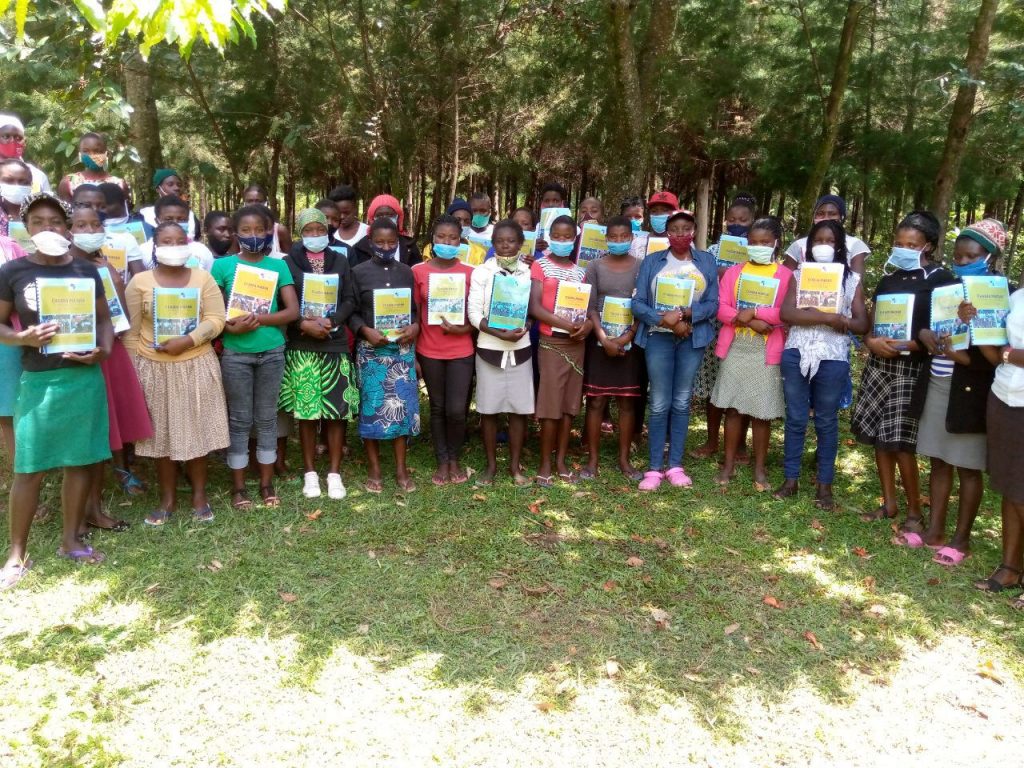Empowering adolescents to Chagua Maisha!

Teaching peers is one of the best ways to develop mastery.
The Encyclopedia of the Sciences of Learning[1] defines peer learning as a situation where peers from similar social groupings, who are not professional teachers, help each other to learn and in doing so, learn themselves. This can be done through different forms such as peer support groups, peer tutoring, peer teaching, and peer-assisted learning. During these peer-learning sessions, life skills that bring together social, emotional and cognitive capacities for problem-solving and goal achievement are learnt and taught. With this in mind, ACLAD, through its Chagua Maisha – Kiswahili for Choose Life program, enhances life skills and career trajectories among adolescents. This program is an adaptation of the tried and tested World Relief Choose Life curriculum.
Since 2018, the Chagua Maisha program has reached over 600 adolescents and trained over 50 peer educators, thus enabling participants to build self-esteem and self-worth, address peer pressure, drug and substance abuse, sexual vulnerabilities and goal setting. Chagua Maisha uses an easy-to-follow format with helpful reminders, notes and activities designed to make learning fun, engaging and dynamic. These include stories, short presentations as well as learning games and activities designed to develop life skills, create confidence and encourage openness between participants and their mentors.
In July 2020, ACLAD partnered with the Reintegration program run by Gynocare Women’s and Fistula Hospital, in Eldoret, Kenya, to empower girls in the program with life skills. The peer to peer sessions led to the training of seven social workers under the fistula reintegration program, which we at ACLAD, envisage will result in enhanced mentorship and counselling for adolescent girls at the facility and beyond. Sharon Muya, Gynocare Women’s and Fistula Hospital and Beyond Fistula Program Assistant attended the Chagua Maisha program at Gynocare Hospital said that she was privileged to attend the sessions as they had taught her a lot on the challenges affecting the youth in the society. She added that, “Through this program, I am now able to know how to handle the youth in the society and advise them on how to be responsible in making decisions on their lives. Thank you so much ACLAD.”

Mentorship and life skills enhancement for adolescents is vital in their development as it involves creating caring, consistent and long-term relationships which combines role modeling, teaching, and advising, listening, encouraging, supporting and co-learning. The mentored adolescent learns from their mentor, who is not their parent, which results in enhanced self-esteem and self-confidence, healthier relationships and lifestyle choices, improved interpersonal skills as well as a decreased likelihood of initiating drug and alcohol use and abuse. The mentor also benefits from the mentorship as they gain insights on childhood and adolescents and are in a position to help youth as they go through various life transitions, especially transitioning to adulthood and the responsibilities that come with adulthood.
Ann, another attendee who teaches youth how to make clothes at Gynocare said she was enlightened by the Chagua Maisha training and had much appreciation for the trainer, whom she noted to be a very happy person. She added that, “The trainer was understanding and made me understand a lot of things and I believe that from now I will help others because personally, I also had challenges of taking care of my child. I also judged some people wondering why are they do things that are not okay, but I did not know the cause of all these and how I could help but I now believe and I will help others. Thank you!”
As Benjamin Franklin once said, “Tell me and I forget. Teach me and I remember. Involve me and I learn.”
Catherine Muteithia
ACLAD Media Consultant
[1] Gogus A. (2012) Peer Learning and Assessment. In: Seel N.M. (eds) Encyclopedia of the Sciences of Learning. Springer, Boston, MA. https://doi.org/10.1007/978-1-4419-1428-6_146
